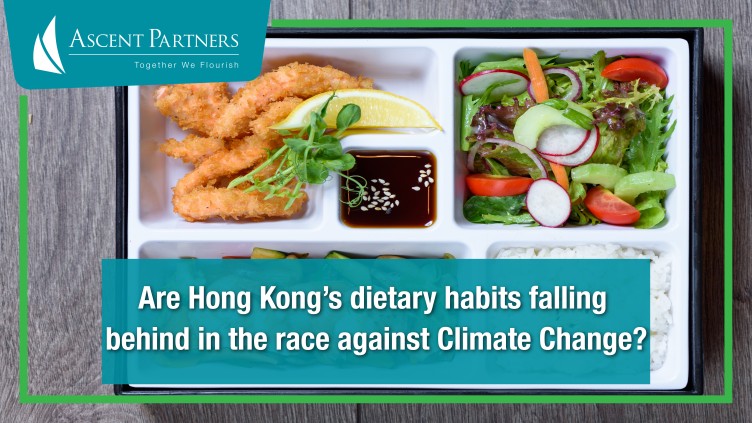
Are Hong Kong’s dietary habits falling behind in the race against Climate Change?
Hong Kong imports over 90% of the total food supply annually, according to the Hong Kong Government, yet the government’s climate action plan to achieve net-zero emissions by 2050 with no mention of the city’s food sector.
Globally, food accounts for nearly a third of human-caused emissions, primarily due to the production of meat, dairy, and seafood, according to the Food and Agriculture Organization (FAO) of the United Nations —and Hong Kong is one of the highest meat consumers in the world.
Hong Kong consumes on average 664g per day (equivalent to two pieces of 10-oz steak), according to a 2018 study from Hong Kong University more than double the amount consumed by China.
In the same conducted by the Earth Science Department of the University of Hong Kong (HKU), the city was ranked the 7th highest emitter per capita in the world, out of 113 regions examined. The city’s rising consumption of imported meat and dairy products was highlighted as a major driver of Hong Kong’s carbon footprint.
Despite this alarming factor, Hong Kong has not targeted food systems in its net-zero plans. Hong Kong relies on a heavily industrialised food system that degrades soil, harms waterways, exploits workers and depletes all of the Earth’s natural resources.
When you take into account the overall greenhouse gas emissions throughout the entire food supply chain, Hong Kong is possibly the worst globally.
But will changing to a more plant-based diet help resolve this issue?
Looking at the Hong Kong government’s Healthy Eating Food Pyramid for adults, from 2017, it does appear to suggest cutting down on meat, dairy, and seafood, by approximately 50%.

However, that pyramid looks surprisingly similar to the one that was introduced in 1992 by the USDA.

And the USA does not import over 90% of its food.
So Hong Kong, as a major food importer, needs to explore alternatives to the heavily meat, dairy, seafood diet that we currently experience.
Whilst this will not be easy, the Hong Kong government needs to address the dietary habits of the population and add another tool to help battle climate change to their arsenal.
Together, we can achieve our net-zero goals.
